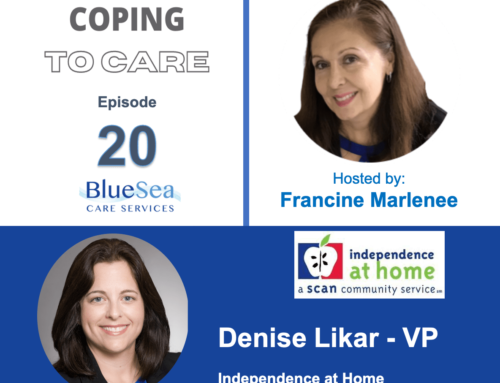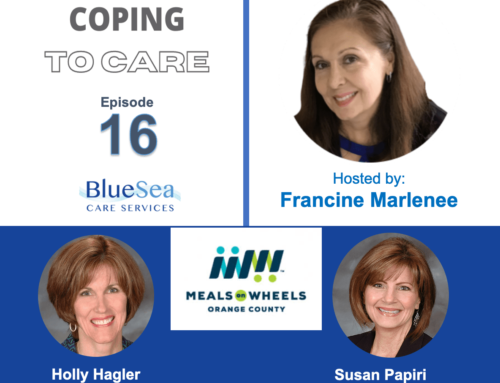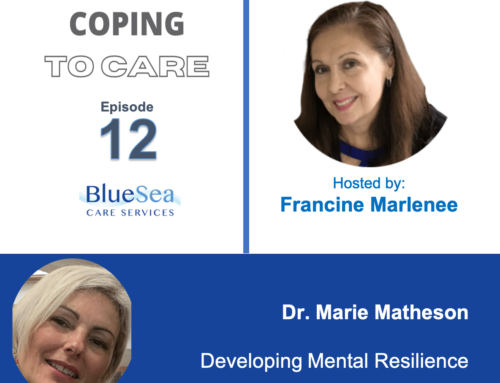For an hour, the group sat in a circle, quiet and still. Not a yawn. Not a nose scratch. Not a twitch.
The seniors were all in a state of meditation: practicing mindfulness and being in the now. The new air conditioner rumbled. Something fell against the wall of the thrift shop next door. Yet nobody opened an eye. They just sat and breathed while they listened to a CD by a well-known meditation instructor. Today’s focus was concentrating even with noise and distractions.
After all, meditation experts agree, if people waited for silence, meditation would never happen.
“It sure beats taking pills,” said Storma Edelbrock, the executive director of the Hayden Senior Center, who leads the weekly 4 p.m. meditation class on Wednesdays. Meditation is thought to reduce stress, anxiety, pain, loneliness and depression.
“The hard part is getting them to try it,” she said. “It’s hard, especially for seniors, to try something new. But then they realize there’s nothing better.”
Edelbrock started the class about a year ago, missing meditation groups she participated in while living in Southern California, even with in-home services California. After a divorce and anxiety she found meditation. The practice even got her past a 27-year fear of flying and other anticipatory fears. Now when anxious, she remembers her mantra: “In this moment I’m perfectly fine.”
At first she thought the seniors at the center would think she was selling “California mumbo-jumbo.” That never happened. The members embraced the idea and the class started with a waiting list.
“They realized it wasn’t some mysterious floating off,” Edelbrock said, laughing.
This week seven people, all older than 55, showed up for the afternoon class that was preceded in the day by pinochle and dominoes. The group ranges in size each week, but there are always a few faithful and a few newcomers. All say they benefit, whether it’s just slowing down for an hour or working on problems such as pain, anxiety or relationships.
It was Mary Nickolson’s first class. She came at the urging of a friend after expressing concerns about getting frustrated with her husband who was in the hospital with heart problems.
“I thought this might help me get through this,” said Nickolson, 77. “I don’t want to get edgy with him at all.”
The group shared their experiences after they all had opened their eyes, rubbed their faces and stretched. It took some longer than others to fully return to the conversation. One woman dozed off, before waking with a start. Nickolson sat for a long time with her eyes closed before slowly looking around.
“I had four tears come down my cheek,” she said, noting she has allergies. “I was able to just let it happen. It was a good feeling.”
She said the experience was “very internally relaxing,” yet her mind wandered.
“I was still thinking about going home and picking up the dog,” she said.
Her classmates assured her that’s normal. Everyone’s mind wanders. They said the key isn’t to concentrate or fuss over those thoughts but just to let them float through your mind. The most important advice: There is no right way or wrong way to meditate.
Meditation comes in many forms and is an aspect of many religious beliefs and traditions, but it is not a belief system. Breathing, yoga and tai chi are types of meditation. In recent years, scientific studies suggest that meditation and mindfulness are beneficial, especially to the elderly, and can increase longevity and health, decrease loneliness, slow the progression of Alzheimer’s and reduce hospitalizations while improving moods.
Yoga is a standard at most senior centers across the region, just like card games and bingo, but meditation classes are rare. Edelbrock hopes other centers take notice and add meditation to their services. In-home care California also notices the benefits of these alternative systems.
To Edelbrock, meditation is about living in the moment and connecting with your conscious self.
“It’s really a skill for some of us to get this,” said Kay Schneider. “For some it comes easy. I struggle. Some days I’m more receptive than others.”
Tom Reul, 93, is a regular. He said meditation has helped him work on forgiveness, a topic that he doesn’t necessarily like.
“You want a clean slate when you go out,” he said. “If you can, you need to forgive everybody for everything – including yourself.”







